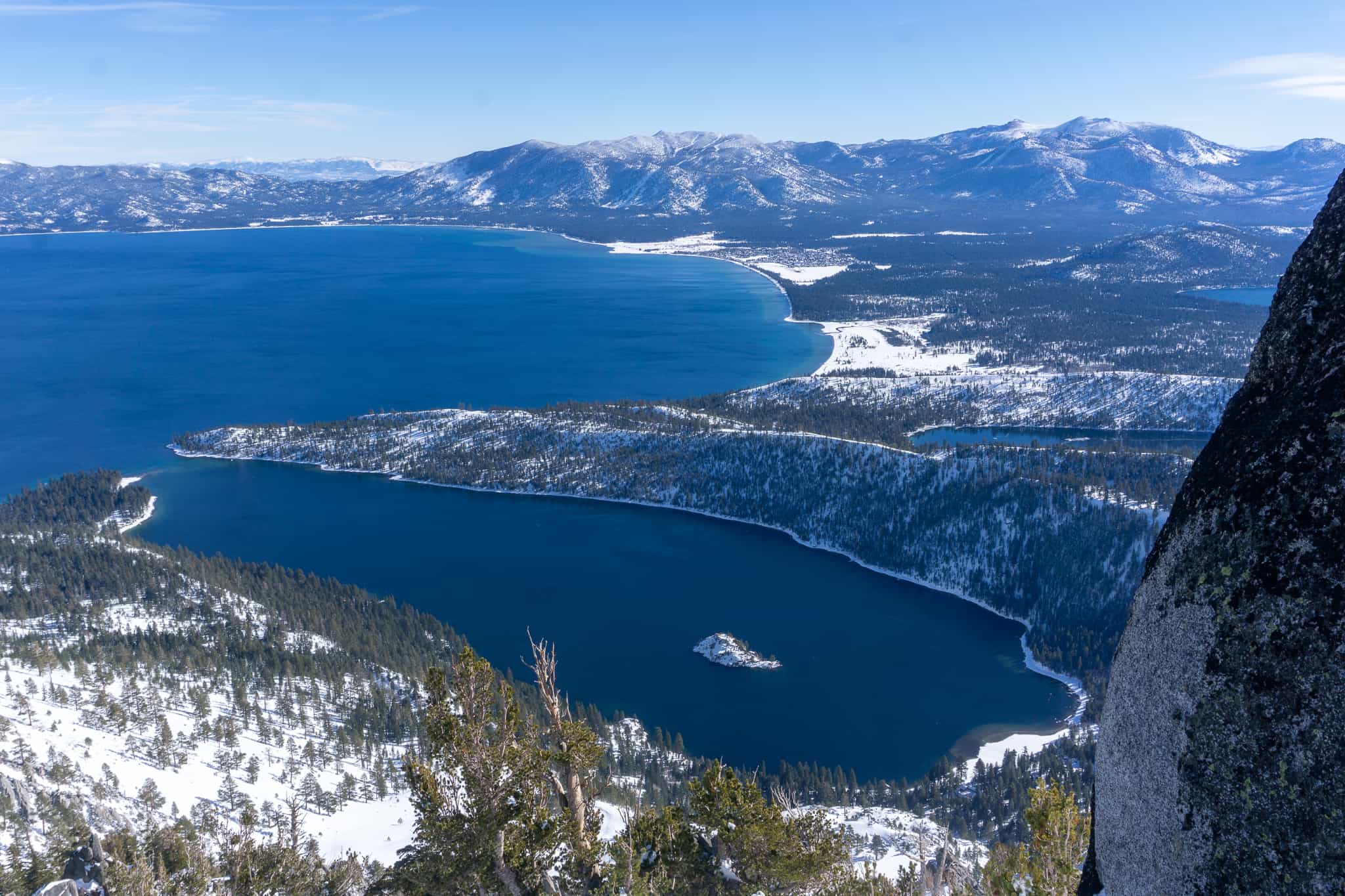
By Carol Chaplin, Lake Tahoe Visitors Authority; Tony Karwowski, North Lake Tahoe Resort Association; and Andy Chapman, Travel North Tahoe Nevada.
Yes, you’re welcome to visit Lake Tahoe.
A recent Fodor’s travel guide story suggested those with plans to visit Lake Tahoe should reconsider due to persistent traffic and the impact it has on lake clarity. While we agree there’s more to be done to take care of this special place, there are efforts already underway, and certainly better ways to achieve the same goal than by just saying “don’t go.”
In fact, there’s greater collaboration on solutions to regional issues including traffic, transportation, and workforce housing than ever before. And, despite Fodor’s story, we can confirm Tahoe is neither “closed” nor discouraging anyone from visiting.
There’s no question that the pandemic exposed and exacerbated infrastructure limitations throughout the Tahoe Basin. Visitation at Lake Tahoe peaked in 2020-21, aligning with a report issued by the Outdoor Industry Association earlier this fall that outdoor participation (since the pandemic began) increased by 26%. Since then, however, Lake Tahoe visitation has returned to pre-pandemic levels.
A common misconception is that visitors alone are responsible for all of the environmental and infrastructure-related impacts that have occurred in Tahoe. The truth is, like many mountain towns across the country, Tahoe and surrounding mountain communities have experienced a surge in the number of residents who moved here because of the ability to work remotely.
This influx, all at once, presented our region with an opportunity to shift focus and work to educate visitors, new and longtime residents, second homeowners, and anyone else coming to Tahoe about the actions we all can take to lessen our individual and collective impact on Lake Tahoe’s environment.
It has prompted stewardship education campaigns and the development of what will be our region’s first Destination Stewardship Plan, aligning for perhaps the first time ever, county and city jurisdictions, recreation land managers, destination management organizations, the Washoe Tribe, local businesses and nonprofits in this effort. As the process to develop a robust plan with actionable outcomes continues, an overarching goal is to shape recreation and tourism in the Lake Tahoe region in ways that protect natural resources and local ways of life.
By choosing to participate and becoming a steward of the region – whether you live here or are visiting – you will be doing your part to help ease the region’s long-standing traffic issues, reduce trash and fine sediment that finds its way into Lake Tahoe, and ensure anyone who wants to, can continue to enjoy Lake Tahoe and all that it has to offer.
Simply telling visitors not to come doesn’t solve problems. Instead, it has the potential to impact Tahoe’s tourism-driven economy, including the businesses and local workforce that depend on it.
Here’s how to help:
- Park your car and use free transportation options. On the North Shore – from the West Shore to Incline Village, ride the bus, use park and ride options, and take advantage of free, on-demand curb-to-curb microtransit services offered by TART Connect to get to work, shops, restaurants, or wherever you’d like to go. In Olympic Valley and Alpine Meadows, request a free ride with Mountaineer. On the South Shore, use Lake Link, free on-demand shuttles to get to beaches, trails, entertainment, nightlife and connect to winter transit service. And, whenever you can, carpool.
- Leave Lake Tahoe better than you found it. This means properly disposing of trash or taking it with you – at the beach, on trails and in town centers – whether it’s yours or not. It also means adhering to trail etiquette, cleaning up after your dog, doing your part to keep wildlife wild, being fire safe, and being considerate and exercising patience when visiting local businesses that may be understaffed.
- Be a steward of Lake Tahoe. Skip single-use products and bring reusable bags and water bottles with you. Make use of the many refill stations throughout the Basin and drink Tahoe Tap. Whether you are a visitor or resident, demonstrate mindfulness and treat the environment and others with respect.
- Visit mid-week or during off-peak seasons. You’ll be less likely to wait in lines – not just in traffic, and will help local businesses and the workforce maintain more consistent business volumes throughout the year.
- Shop local when you’re here. Many of our businesses are owned and operated by local residents. They also employ people who live in our communities full-time and are the heart of our predominantly tourism-driven economy.
Lake Tahoe has always been and will continue to be a great place to live, work and play. To ensure it remains a destination that future generations can also enjoy, it’s up to all of us to be responsible stewards of Tahoe.
This article is written by 3 folks who a) work for/run marketing agencies, and b) have a PROVEN track record for disregarding anything but money! So telling folks, “just come here and be nice and pick up your trash” is addressing symptoms, not the core issues! Overtourism is destroying many places and Tahoe is no different. If we want to love Lake Tahoe, we have to not treat it like Disneyland. There is nothing wrong with pointing out that too many people in one area is not fun for anybody, and destroys the area. Folks who have money to gain and cannot see anything else should not be part of the discussion.
So what your saying is all North American mountain towns are screwed. Just great.